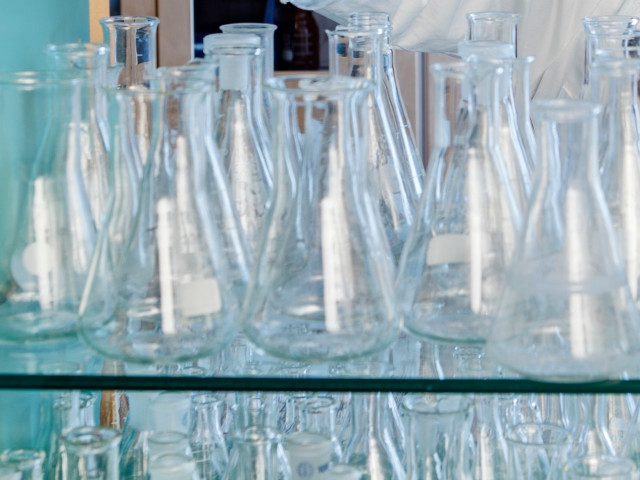- Fundamental statistics, confidence interval, statistical tests, linear regression and experimental design.
- Spectroscopic, chromatographic and electrochemical techniques for chemical analysis.
- Calibration, validation and uncertainty.
KD1190 Chemical Measuring Techniques 9.0 credits

The course, Chemical Measuring Techniques, connects mathematical statistics with analytical chemistry.
The aim of the course is to introduce general aspects of measurements, and to integrate statistical methods of data handling with the presentation of chemical analysis techniques.
Content and learning outcomes
Course contents
Intended learning outcomes
When you have passed the course you will be able to:
• Plan and evaluate experiments with statistical methods.
• Describe and perform some fundamental chemical analysis methods.
• Choose and apply suitable calibrating models, and use statistical tests to handle the measuring data from varying chemical analyses.
• You will also be able to evaluate uncertainty and estimate which parameters contribute to the analytical method’s uncertainty.
• You will also, by getting a fundamental knowledge of the most important analytical techniques that are used today, be able to assess which method is suitable for a given analytical problem and which disturbances that can be expected.
• You will evaluate the usefulness and limitations of different measurement techniques.
Literature and preparations
Specific prerequisites
Completed upper secondary education including documented proficiency in English corresponding to English A. For students who received/will receive their final school grades after 31 December 2009, there is an additional entry requirement for mathematics as follows: documented proficiency in mathematics corresponding to Mathematics A.
And the specific requirements of mathematics, physics and chemistry corresponding to Mathematics E, Physics B and Chemistry A.
Recommended prerequisites
Two years of study at the School of Chemistry and Chemical Engineering, KTH, or corresponding knowledge.
Equipment
Literature
D.C. Harris, "Quantitative Chemical Analysis" (Freeman & Co, 8th edition)
Miller & Miller "Statistics and Chemometrics for Analytical Chemistry" (Pearson Education, 6th edition)
Handouts.
Examination and completion
If the course is discontinued, students may request to be examined during the following two academic years.
Grading scale
Examination
- LAB1 - Laboratory work, 2.5 credits, grading scale: P, F
- TEN1 - Examination, 4.5 credits, grading scale: A, B, C, D, E, FX, F
- ÖVN1 - Computer Laboratory Work, 2.0 credits, grading scale: P, F
Based on recommendation from KTH’s coordinator for disabilities, the examiner will decide how to adapt an examination for students with documented disability.
The examiner may apply another examination format when re-examining individual students.
Other requirements for final grade
The final grade is based on the grade on the examination and is given when all procedures are approved.
Opportunity to complete the requirements via supplementary examination
Opportunity to raise an approved grade via renewed examination
Examiner
Ethical approach
- All members of a group are responsible for the group's work.
- In any assessment, every student shall honestly disclose any help received and sources used.
- In an oral assessment, every student shall be able to present and answer questions about the entire assignment and solution.
Further information
Course room in Canvas
Offered by
Main field of study
Education cycle
Add-on studies
KD2330 Analytical Separations
Supplementary information
Will replace KD1110.